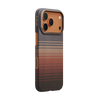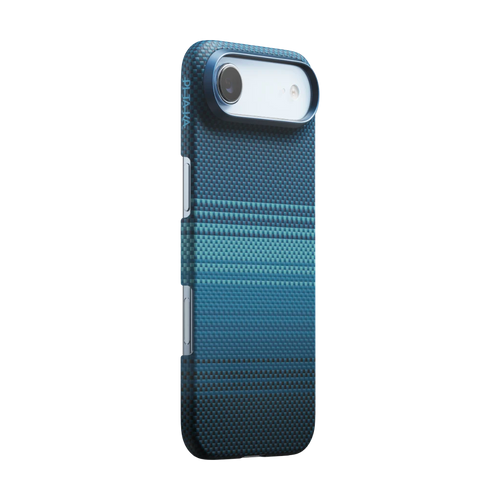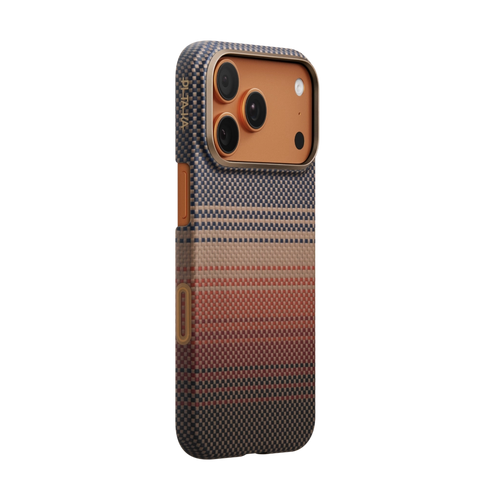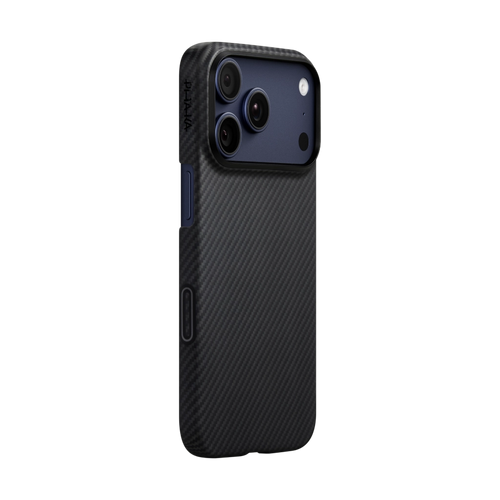Although it's difficult to say which of our inventions ranks #1, many argue that the telephone, invented by Alexander Graham Bell in 1876 is one of the most important. In the almost 150 years since Graham Bell’s invention, how we communicate has progressed substantially with the invention of the cell phone. We're going to explore how the cell phone, much the same way as the telephone, started life as an incomprehensible concept and became an invention that we rely on every single day.
Take your favorite drink, sit back, and enjoy the journey of the history of the cell phone!
Before The First Cell Phone

There are multiple, somewhat unproven, milestones that led up to the first cell phone in 1973. One of the most substantial anecdotes dates back to 1908, when the Aerial Telephone and Power Company claimed to have invented a mobile phone. The idea was so ridiculous that the company was accused of fraud, and production never went ahead. Only 60 years previously, the electric telegraph was first put to use to communicate transatlantically and yet here was a company claiming to speak to someone wirelessly across a 7 mile distance. It seems that the claim was probably false, however, there are other instances of wireless transmissions from around this time.
During both World Wars, several countries experimented with wireless telephone technology, including Germany who began using trains to develop a wireless phone system. As these technologies were being tried and tested throughout the 20th century, a host of telephone services began to spread. These devices don’t resemble the modern day smartphone, but guided the way to the beginning of the history of the cell phone.
A Brief History Of The Cell Phone
1973: The First Official Cell Phone

In 1973, Martin Cooper, a Motorola executive, called its rival company Bell Labs from the first official cell phone, taking their rival and the whole world by surprise. Despite weighing over two pounds and resembling a brick, the device was not too much different from the wireless phones that it inspired over the next several decades.
The device required ten hours of charging time only to provide around thirty minutes of talk-time. Not surprisingly, this first cell phone attempt was never made available to the public.
1983: The Motorola DynaTAC

It wasn't until a decade later, in 1983, that Motorola finally had a consumer-ready cell phone on hand: The Motorola DynaTAC. The DynaTAC used the same technology that had made the original Motorola prototype possible and was a similar shape and size.
Apart from being far more reliable than the initial prototype, it included a small digital screen and a more appealing design. The DynaTAC was originally priced at almost $4,000, a little over $10,000 by today's standards.
1989: The Motorola MicroTAC

Pocket-sized phones became a reality with the invention of the Motorola MicroTAC, which measured nine inches and weighed just under a pound.
The MicroTAC introduced certain standards that would soon be seen on other cell phones. There were menu buttons, as well as a more advanced digital screen paving the way for mobile phones of the 90s and early 2000s.
1993: The First Smartphone

In 1993, IBM released the Simon Personal Communicator, described as the first smartphone. Though it’s more akin to the phones of the 90s than the phones of today, it included many of the same features, such as apps, a calendar, address book, clock, notepad, PDA, email, touchscreen, and even a full QWERTY keyboard.
At this time, cell phone prices become more affordable. The smartphone was priced at $899 with a contract, which isn't much different from the high-end phones of today. Though it never reached the same popularity as other smartphones, it was more than a decade ahead of its time.
1998: The Nokia 6000 Series

In 1998, Nokia launched the 6000 Series, a line of phones that would maintain its popularity for several years, particularly among businesspeople. These phones featured a plain, professional, unisex design that was much more durable, compact, and affordable than most of the other phones of the time.
2001: The First Modern Smartphone

In 2001, Samsung released the SPH-I300, marketed as a combined phone and PDA the cell phone looked much more like the smartphones of today than the Simon Personal Communicator.
The SPH-I300 was a small phone with just a few buttons. It featured a much larger screen than most phones of the time that was touch-sensitive.
2004: The Motorola Razr

It’s almost impossible to talk about the evolution of the cell phone without mentioning one of the best selling cell phones in history. The Motorola Razr was the phone that turned the cell phone industry into a fashion industry. Suddenly, it wasn't enough to have a good phone; it also needed to exude aesthetics.
The Razr was a monumental success, blowing every other phone out of the water. and completely changed cell phone culture.
2007: The iPhone

On January 9th 2007, Steve Jobs presented the first iPhone to the world. It was quickly met with "Oohs" and "Aahs" as the simple, crisp display and smooth animations instantly won over the crowd.
Though it was exciting for Apple fans and much of the public at the time, the iPhone didn't become a sensation overnight. Apple was still seen as a computer company, and a phone made by them made as much sense as the short-lived Windows Phone.
2010: The iPhone 4

It wasn't until the iPhone 4 that the truly modern smartphone began to take shape. The iPhone 4 finally defeated the BlackBerry and proved that Apple's innovative design would win out. Nearly every smartphone of today draws some part of its design from the iPhone 4.
A Brief History of Cell Phone Cases
1996: The Motorola Carrying Case

As cell phones began to get smaller and more popular, cell phone cases also started to make an appearance. The Motorola MR20, released in 1996, offered a small, black leather case with a clear, flexible plastic over the keypad and screen. This allowed you to type and make calls without having to take the phone out of the case.
Unlike today's phone cases, which conform to the shape of the phone, the Motorola carrying case was more like a little satchel for your cell phone. It even included a loop that you could wear around your wrist or tie to a belt loop.
2000: The Cell Phone Holster

Most of us have seen middle-aged men with a smartphone attached to his belt loop, the same way he might carry a compass or a pocket knife. Though these types of phone cases never quite became the norm, they started to find their audience at the turn of the millennium as a convenient and alternative way to carry your phone.
2002: Novelty Phone Cases

Once cell phones became more affordable and portable, a younger audience started to own mobile phones. As the role of the cell phone changes, so did their cases. The leather phone cases of the 1990s were replaced with versatile novelty cases. These cases provided little in the way of protection or functionality, but allowed the phone to reflect the personal style of the owner.
The Cell Phone Cases Of Today

As cell phones have become more essential in our lives, the need for a phone case has also changed. Your phone is often made from expensive and sometimes fragile materials, so the case should offer protection without sacrificing style. Today's cases are largely made out of durable plastic, high-quality leather, and smooth silicon. Going without a case can be a risky and expensive business!
The Magnetic Phone Case: The Cell Phone Case Of The Future
All of this history has brought us to one of the most innovative, durable, and sleek smartphone cases available: The MagEZ Case. This magnetic phone case is made from woven aramid fibers, the same material used in race cars, spaceships, and bulletproof armor. It's thin, so you can use it without losing the shape of your phone, and it's smooth, making it comfortable to hold.

Best of all, when used with a PITAKA magnetic wireless charger, the MagEZ Case attaches to the charger for seamless magnetic functionality. You can also pair the MagEZ Case with a mount for your car or desk.
We hope you've enjoyed this journey through the history of the cell phone and cell phone cases! It's fascinating to see how those initial prototypes turned into one of the most important inventions in recent history. If you're looking for a case that's as futuristic and stylish as the smartphones of today, consider picking up the MagEZ Case.















